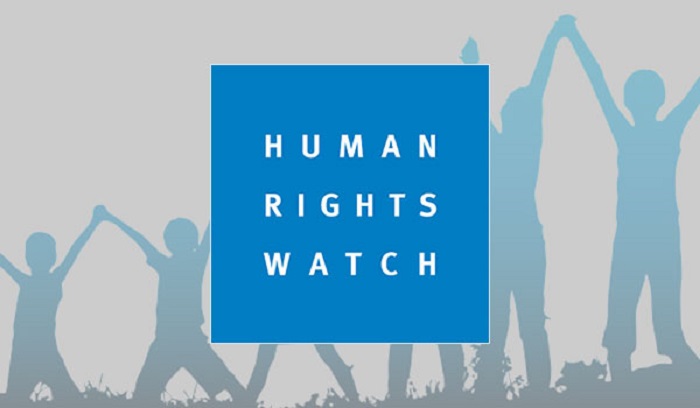
IMF should oppose restrictions on freedom of expression, Civil Society Groups
The International Monetary Fund (IMF) should urge Sri Lanka’s government to abandon draft legislation that would severely curtail civil society and jeopardize the IMF’s program in the country, Human Rights Watch said in a letter to the IMF that was released today.
The proposed Non-Governmental Organizations (Registration and Supervision) Act is among several recent and planned measures that would curtail fundamental freedoms, despite the critical role of public scrutiny in promoting good governance and combatting corruption.
The IMF’s US$3 billion bailout of Sri Lanka – which is linked to government commitments to reform – helped stem the immediate economic crisis after the country defaulted on its foreign debt in 2022, but further progress is threatened by the adoption of laws by President Ranil Wickremesinghe’s administration that would severely restrict basic rights. The Online Safety Act, enacted in January, creates vague and broad speech-related offenses punishable with lengthy prison terms. The Anti-Terrorism Bill, currently before parliament, contains sweeping new speech-related offenses and arbitrary powers of arrest. And the draft law to regulate nongovernmental organizations could make independent civil society activity all but impossible in Sri Lanka.
“As the economy collapsed in 2022, Sri Lankans demanded good governance and an end to corruption, but instead now face draconian laws and policies that threaten human rights and undermine reforms,” said Meenakshi Ganguly, deputy Asia director at Human Rights Watch. “The protests helped bring President Wickremesinghe to power, but instead of listening to calls for change, he’s clamping down on peaceful dissent.”
A 2023 IMF study of Sri Lanka known as the Governance Diagnostic Assessment stated that “[a]nticorruption efforts are unlikely to achieve their objectives unless they also encompass initiatives designed and led by groups outside of government who are committed to rule-based inclusive economic and social progress.” However, the study found that civil society’s participation in oversight and monitoring of government actions has been “restricted by limited transparency, the lack of platforms for inclusive and participatory governance, and by broad application of counter-terrorism rules.” As a result, “opportunities for public participation and oversight of official behaviour, including by civil society, are increasingly restricted.”
The government on January 30, 2024, provided the draft NGO law to selected members of civil society, who were given three weeks to respond. The bill does not address any evident need, but instead seeks to subject civil society organizations to invasive government scrutiny and interference, and threatens civil society members with prison if they don’t comply with cumbersome administrative procedures.
The National Collective of CSOs and NGOs, a coalition of Sri Lankan civil society organizations, wrote to the government on February 28 that the proposed law would “violate the fundamental rights to freedom of association and expression,” while damaging the delivery of services by civil society organizations, including to “the many families who are struggling to make ends meet in the midst of severe economic hardship.”
The United Nations High Commissioner for Human Rights, Volker Türk, in his March 1 update to the UN Human Rights Council on the crisis in Sri Lanka, said he was “concerned by the introduction of new or proposed laws with potentially far-reaching impact on fundamental rights and freedoms … which variously strengthen the executive, grant broad powers to the security forces, and severely restrict rights to freedom of assembly, association and expression, impacting not only on civic space but the business environment.”
The IMF should protect the credibility and efficacy of its program in Sri Lanka by publicly calling upon the government to abandon the proposed NGO law, impose a moratorium on use of the Online Safety Act, and amend the Anti-Terrorism Bill to ensure that it respects human rights standards, Human Rights Watch said.
“The IMF and other international partners supporting Sri Lanka’s economic recovery recognize that this crisis has its roots in misgovernance and corruption,” Ganguly said. “If their efforts are to be successful, they need to stand firm against the government’s attempts to curtail fundamental civil and political rights.” (HRW)
